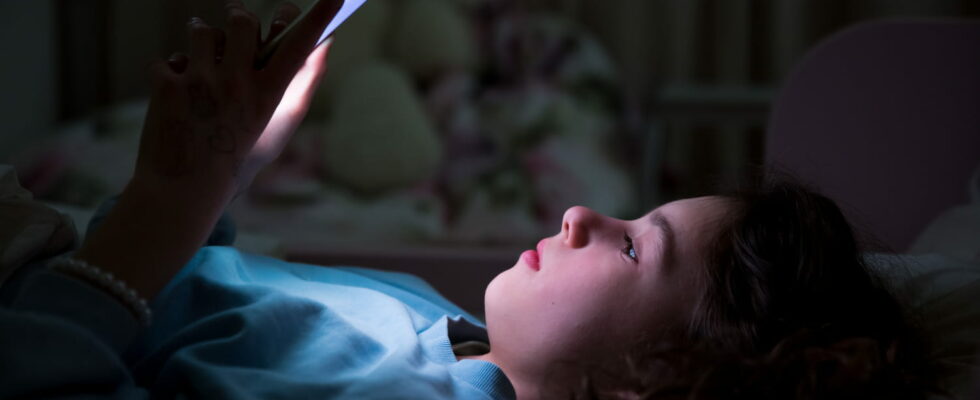In a world where a large part of the population is exposed to screens, wearing anti-blue light glasses is often recommended. But are these really effective?
This is an option that has been with our glasses for almost forty years now: the anti-blue light filter. While our eyes are constantly glued to screens, whether on our phone, computer or tablet, we are increasingly being pushed to protect them from the blue lights emitted by our devices. Blue light, more energetic than others, hits our retina with more power. This power results in many complications, such as eye fatigue, burns, dryness or even AMD (Age-related macular degeneration).
While 7 out of 10 people wear glasses in France, the anti-blue light filter has become an asset considered essential by many, including opticians. It has also enjoyed growing success for years, being increasingly adopted by the population, even among those whose eyesight is perfect. However, are your glasses with an anti-blue light filter really capable of protecting you?

A study by the Organization of Consumers and Users (OCU)a Spanish non-profit organization, looked into the effectiveness of this famous filter applied to our glasses. Some 610 adults took part in the survey over a week. They were separated into two categories: those wearing anti-blue light glasses, and those wearing glasses without a filter.
Result: the two categories showed no significant differences regarding visual acuity, fatigue, sleep quality or AMD. The UCO concluded its study by stating that “based on the best data currently available, light filtering lenses are likely to have little or no effect compared to lenses without blue light filters”.
However, opinions differ and other organizations have managed to highlight the virtues of the anti-blue light filter. This is the case of the Macula Retina association, which believes that this filtering would increase users’ ability to tolerate glare and recover from intense light. It could also prevent oxidative stress and premature cellular aging.
Despite the discrepancies between the different studies, professionals can only advise you to turn to the anti-blue light filter. Although there seems to be no consensus on their usefulness, being too cautious has never hurt anyone except your wallet!
